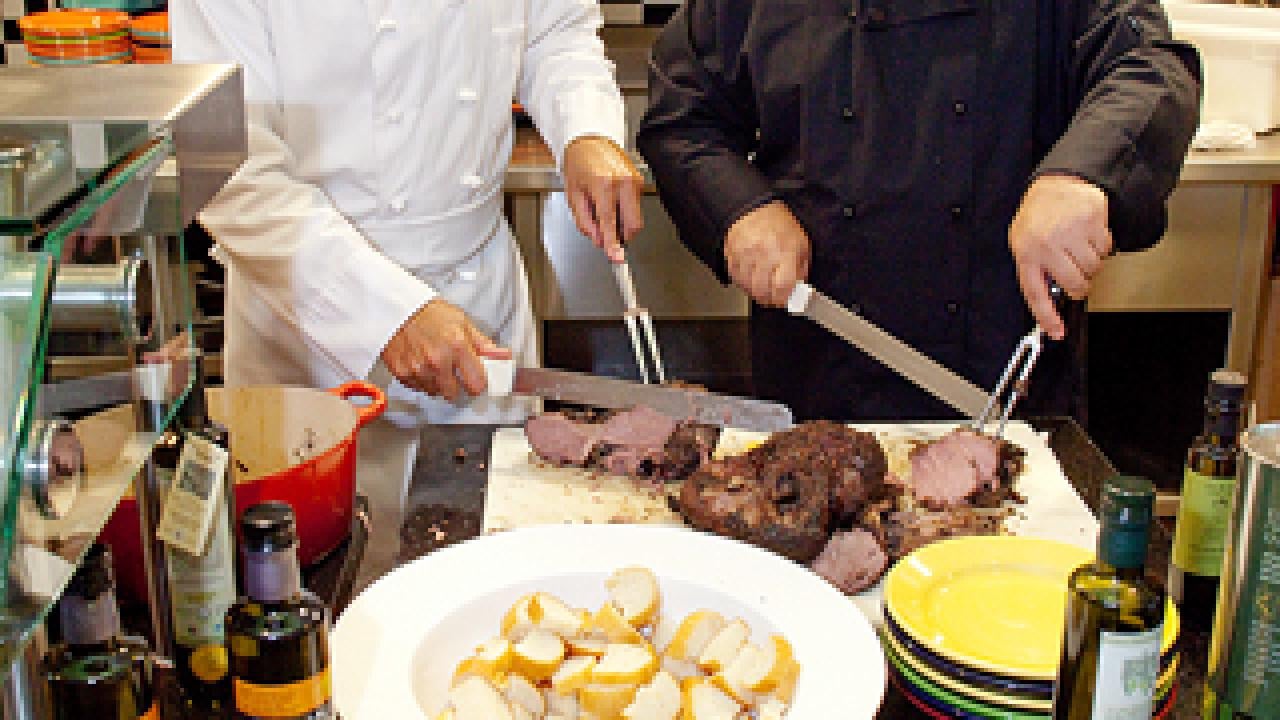Almost all of the samples in a recent authenticity and quality review of olive oils sold to restaurants and food-service establishments passed common federal chemistry tests but often failed to meet sensory standards, and 10 percent had clearly been adulterated, report researchers at the University of California, Davis, Olive Center.
Based on these findings, the researchers recommend that the restaurant and food-service sectors enhance their quality-control protocols for olive oil by including more effective tests outlined in the report. Researchers also recommend that the U.S. Department of Agriculture include the more effective tests in U.S. standards for extra-virgin olive oil.
“Results of this study make it very clear that efforts to control the quality of olive oils served in restaurants and other food-service operations will likely fail if they are based only on the most commonly used chemical analyses,” said Dan Flynn, executive director of the UC Davis Olive Center and a co-author of the study.
“It is now clear that even olive oils that prove to be substandard according to sensory tests can slip past existing chemical protocols,” he said.
Flynn noted that the findings were consistent with the results from the Olive Center’s reviews of olive oils sold in California supermarkets, reported in 2010 and 2011.
The new study was conducted by Selina Wang, research director of the UC Davis Olive Center, and by Edwin Frankel, the center’s senior scientific adviser and one of the world’s leading authorities on food oils and related compounds.
The UC Davis researchers evaluated 21 olive oil brands sold to restaurants and food-service operations, including 15 marketed as “extra virgin,” the premium grade for olive oil. The other six olive oils were not labeled as extra virgin.
All of the olive oil samples were sent to the Australian National Oils Laboratory for sensory and chemical testing, and to sensory panels in Spain and Italy. Chemical tests are used to analyze the chemical makeup of the oils, while sensory tests evaluate the flavor, aroma and texture of the oils.
All of the analyses were conducted as “blind” tests, in which the laboratory and sensory reviewers did not know the brand name or country of origin of the oils they were evaluating.
Results from the chemical and sensory tests indicated that:
- All but one of the oils marketed as extra virgin passed commonly used USDA chemistry standards for quality.
- Despite this, nine (60 percent) of the samples failed the USDA sensory standards for extra virgin, criteria that are rarely used by food distributors for quality control.
- The most common sensory defects were flavors and aromas described as rancid, fusty or muddy, and musty. Some of the oils tested were so defective that the sensory panelists classified them as lamp oil, considered by USDA standards to be unfit for human consumption without further refining.
- These nine oils also failed to pass the chemical tests for the compound diacylglycerol, a standard adopted by the Australian Olive Association for extra virgin.
- Chemical purity tests indicated that one of the 15 samples labeled as extra virgin and one of the six samples not labeled as extra virgin had been adulterated with cheap, refined canola oil.
The UC Davis researchers advised that these findings indicate that further research is needed to develop faster, more accurate and less expensive tests and to develop innovative packaging that will extend olive oil freshness.
Copies of the new report are available from the UC Davis Olive Center.
Media Resources
Pat Bailey, Research news (emphasis: agricultural and nutritional sciences, and veterinary medicine), 530-219-9640, pjbailey@ucdavis.edu
Dan Flynn, UC Davis Olive Center, (530) 752-5170, jdflynn@ucdavis.edu
